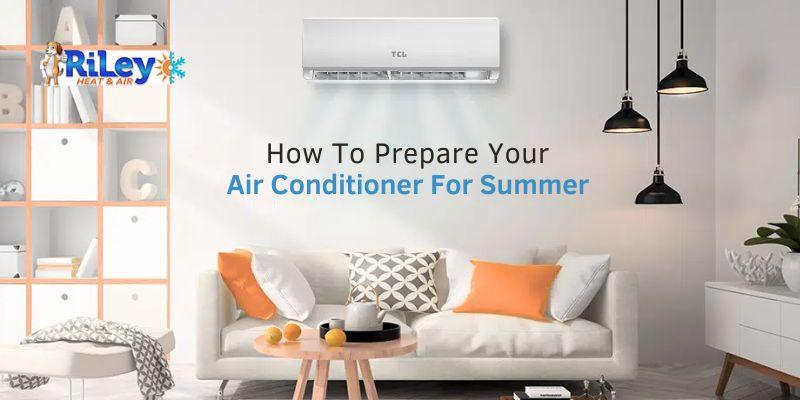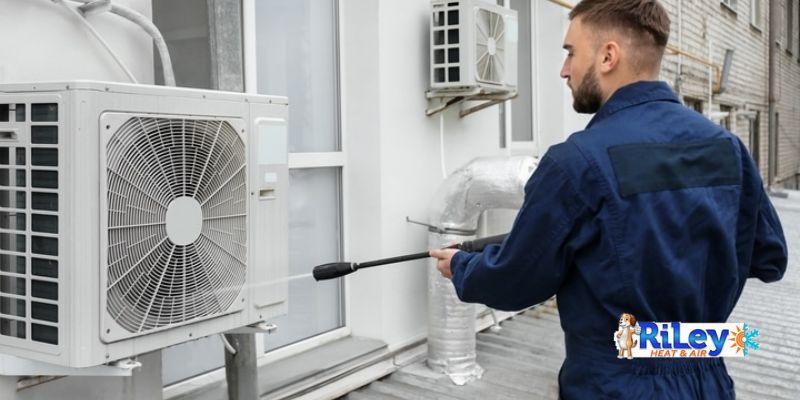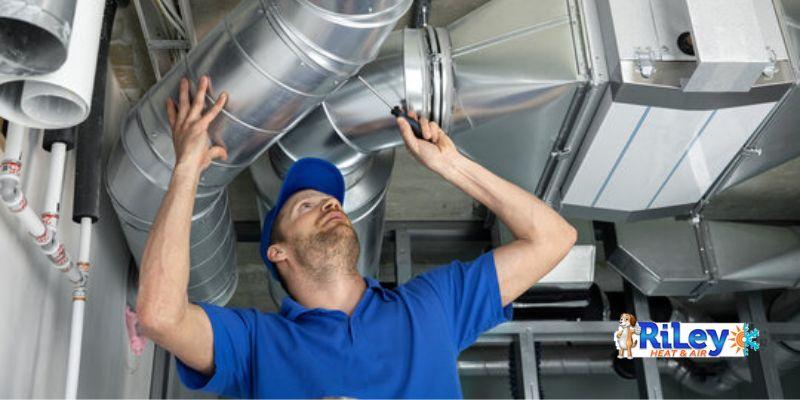
How Do You Prepare Your AC Unit for Summer?
As the temperature rises and the days grow longer, it's time to prepare your air conditioning unit for the hot summer months. With proper maintenance and preparation, you can ensure that your AC system runs efficiently, keeping your home cool and comfortable throughout the season. This guide will walk you through the essential steps to prepare your AC unit for summer.
Tips for Preparing Your AC Unit for Summers
Schedule a Professional Maintenance Check-up
Before the peak of summer, it's wise to schedule a professional HVAC company in Washington, DC, to inspect and tune up your air conditioning system. During this maintenance visit, the technician will clean the unit, check for potential issues, and ensure all components work correctly. Regular maintenance improves your AC's efficiency and helps prevent costly breakdowns later.
Inspect and Clean the Air Filters
Start your AC preparation by inspecting, cleaning, or replacing the air filters. Over time, dirt, dust, and debris accumulate in the filters, obstructing airflow and reducing the efficiency of your system. Regularly cleaning or replacing the filters can improve airflow, enhance indoor air quality, and reduce energy consumption.
Check the manufacturer's recommendations for the frequency of filter replacement, typically ranging from every one to three months. If you have reusable filters, wash them with mild detergent and water, ensuring they are scorched before reinstalling them. For disposable filters, purchase the correct size and type recommended for your AC unit. By keeping the air filters clean, you can optimize the performance of your AC system and ensure consistent cooling throughout the summer.
Clean the Outdoor Unit

The outdoor condenser unit plays a crucial role in the functioning of your AC system by dissipating heat from indoors to outdoors. Over time, the condenser coils can accumulate dirt, leaves, and other debris, hindering proper airflow and reducing efficiency. Before the summer heat sets in, cleaning the outdoor unit thoroughly is essential; start by turning off the power to prevent accidents.
Remove debris around the unit, such as leaves, grass clippings, or branches. Then, carefully use a vacuum cleaner or a soft brush to clean the condenser coils and fins. Be gentle to avoid bending the fins, as this can restrict airflow. Trim any vegetation or foliage around the unit to ensure proper airflow and ventilation. By keeping the outdoor unit clean and free from obstructions, you can optimize its performance and provide efficient cooling during the summer months.
Check the Thermostat Settings
Verify that your thermostat is set to the desired temperature and functioning correctly. Consider upgrading to a programmable or smart thermostat if you don't already have one. These thermostats allow you to set cooling schedules based on your preferences and help you save energy and money by automatically adjusting the temperature when you're away from home.
Inspect and Seal the Ductwork

Leaky ductwork can significantly reduce the efficiency of your air conditioning system by allowing cool air to escape before it reaches your living spaces. Before the summer heat arrives, it's essential to inspect your ductwork for any signs of leaks or damage. Start by visually checking the ducts for visible cracks, gaps, or loose connections. Pay close attention to areas where ducts are exposed, such as attics, basements, or crawl spaces.
Additionally, you can use a smoke pencil or an incense stick to detect air leaks along the duct seams. Once you've identified any leaks, seal them using foil tape or mastic sealant to prevent air loss. Properly sealed ductwork can improve the efficiency of your AC system, reduce energy waste, and ensure consistent cooling throughout your home during the summer months.
Inspect Insulation
Adequate insulation is crucial for maintaining a comfortable indoor temperature and reducing energy costs. Check the insulation in your home, particularly in the attic and around doors and windows. Replace or add insulation to prevent cool air from escaping and hot air from entering your home.
Test the System
Before the hot weather sets in, testing your air conditioning system to ensure it works correctly is a good idea. Please turn on the AC and let it run for a while to ensure that cool air is coming out of the vents and that the system is cooling your home effectively. Schedule a repair appointment promptly if you notice any issues, such as weak airflow or unusual noises.
Consider Upgrading to a More Efficient Unit
If your air conditioning system is old or inefficient, now may be the time to consider upgrading to a newer, more energy-efficient model. Modern AC units are designed to be more efficient, saving you money on energy bills while keeping your home cool and comfortable. Look for units with a high SEER (Seasonal Energy Efficiency Ratio) rating for optimal efficiency.
Plan for Regular Maintenance Throughout the Summer
Once summer arrives, maintain your AC unit regularly to ensure optimal performance. Keep the outdoor unit clean and debris-free, check the air filter monthly, and schedule professional maintenance as needed. By staying on top of maintenance tasks, you can prolong the life of your air conditioning system and avoid costly repairs down the line.
Practice Energy-saving Habits
In addition to maintaining your air conditioning unit, you can adopt several energy-saving habits to reduce your cooling costs during summer. Keep blinds or curtains closed during the hottest part of the day to block out sunlight, use ceiling fans to circulate air, make your home feel cooler, and avoid running heat-generating appliances during peak hours.
Wrapping Up
Following these steps, you can ensure your air conditioning unit is prepared to keep you cool and comfortable throughout the summer. With regular maintenance and proper care, your AC system will run efficiently, saving you money on energy bills while providing reliable cooling for your home. Ensure you also outsource the maintenance to the best HVAC contractor in Washington for better results. Don't wait until the heatwave hits—start preparing your AC unit for summer today!







COMMENTS